Doctoral funding
On doctoral level, no tuition fees are charged, but you will need to cover your living expenses. When you apply for doctoral admission , you can ask the Finnish university department for advice on research funding options. The university departments may have paid doctoral research positions available, or doctoral funding schemes of their own. They can usually also best direct you to potential grant-awarding foundations in your field of scientific research.

EDUFI Fellowships
The national EDUFI Fellowship scholarship programme is available for doctoral level studies and research in Finland.
- EDUFI Fellowship information on the EDUFI home pages
Note that you can not independently apply for the EDUFI Fellowship - the "applicant" in this scholarship programme is your Finnish university department. So, in order to be eligible for the EDUFI Fellowship, you must first successfully apply for doctoral admission .
If you have questions regarding the EDUFI Fellowship itself, please contact the scholarships admins directly. You can find their contact details on the above EDUFI Fellowship web page.
Note that EDUFI Fellowships are not full degree scholarships but "start-up grants" awarded for a maximum of 12 months. After the EDUFI scholarship period the student/researcher will need to find other sources of funding.
Other funding resources
For more information on scientific research funding in Finland, see the Research Council of Finland website and the Research.fi funding calls database .
Paid Doctoral positions may also be available - see links to the universities' Doctoral info pages in the section Doctoral Admissions .
Finland Doctoral Fellowships
As part of the Finland Scholarship programme, Finland Fellowships is a funding option for non-EU/EEA students and researchers admitted to start their Doctoral studies at one of Finnish research and arts universities.
The Finland Fellowship contributes to the salary paid by your Finnish university and also includes a 2000€ arrival grant. Check the availability and application details of the Finland Fellowship with the Finnish university you're interested in. Finland Doctoral Fellowships are available from 2022 to 2024. The scholarships are funded by the Ministry of Education and Culture.
Grant-funded doctoral studies
The instruction belongs to the following themes.
- Funding for doctoral research
Search for degree programme
Open university programmes.
- Open university Flag this item
Bachelor's Programmes
- Bachelor's Programme for Teachers of Mathematics, Physics and Chemistry Flag this item
- Bachelor's Programme in Agricultural Sciences Flag this item
- Bachelor's Programme in Applied Psychology Flag this item
- Bachelor's Programme in Art Studies Flag this item
- Bachelor's Programme in Biology Flag this item
- Bachelor's Programme in Chemistry Flag this item
- Bachelor's Programme in Computer Science (TKT) Flag this item
- Bachelor's Programme in Cultural Studies Flag this item
- Bachelor's Programme in Economics Flag this item
- Bachelor's Programme in Education: Class Teacher (KLU, in Swedish) Flag this item
- Bachelor's Programme in Education: Class Teacher, Education (LO-KT) Flag this item
- Bachelor's Programme in Education: Class Teacher, Educational Psychology (LO-KP) Flag this item
- Bachelor's Programme in Education: Craft Teacher Education (KÄ) Flag this item
- Bachelor's Programme in Education: Early Education Teacher (SBP) Flag this item
- Bachelor's Programme in Education: Early Education Teacher (VO) Flag this item
- Bachelor's Programme in Education: General and Adult Education (PED, in Swedish) Flag this item
- Bachelor's Programme in Education: General and Adult Education (YL and AKT) Flag this item
- Bachelor's Programme in Education: Home Economics Teacher (KO) Flag this item
- Bachelor's Programme in Education: Special Education (EP) Flag this item
- Bachelor's Programme in Environmental and Food Economics Flag this item
- Bachelor's Programme in Environmental Sciences Flag this item
- Bachelor's Programme in Food Sciences Flag this item
- Bachelor's Programme in Forest Sciences Flag this item
- Bachelor's Programme in Geography Flag this item
- Bachelor's Programme in Geosciences Flag this item
- Bachelor's Programme in History Flag this item
- Bachelor's Programme in Languages Flag this item
- Bachelor's Programme in Law Flag this item
- Bachelor's Programme in Logopedics Flag this item
- Bachelor's Programme in Mathematical Sciences Flag this item
- Bachelor's Programme in Molecular Biosciences Flag this item
- Bachelor's Programme in Pharmacy Flag this item
- Bachelor's Programme in Philosophy Flag this item
- Bachelor's Programme in Physical Sciences Flag this item
- Bachelor's Programme in Politics, Media and Communication Flag this item
- Bachelor's Programme in Psychology Flag this item
- Bachelor's Programme in Science (BSC) Flag this item
- Bachelor's Programme in Social Research Flag this item
- Bachelor's Programme in Social Sciences Flag this item
- Bachelor's Programme in Society and Change Flag this item
- Bachelor's Programme in the Languages and Literatures of Finland Flag this item
- Bachelor's Programme in Theology and Religious Studies Flag this item
- Bachelor's Programme in Veterinary Medicine Flag this item
Master's and Licentiate's Programmes
- Degree Programme in Dentistry Flag this item
- Degree Programme in Medicine Flag this item
- Degree Programme in Veterinary Medicine Flag this item
- International Masters in Economy, State & Society Flag this item
- Master ́s Programme in Development of health care services Flag this item
- Master's Programme for Teachers of Mathematics, Physics and Chemistry Flag this item
- Master's Programme in Agricultural Sciences Flag this item
- Master's Programme in Agricultural, Environmental and Resource Economics Flag this item
- Master's Programme in Area and Cultural Studies Flag this item
- Master's Programme in Art Studies Flag this item
- Master's Programme in Atmospheric Sciences (ATM) Flag this item
- Master's Programme in Changing Education Flag this item
- Master's Programme in Chemistry and Molecular Sciences Flag this item
- Master's Programme in Computer Science (CSM) Flag this item
- Master's Programme in Contemporary Societies Flag this item
- Master's Programme in Cultural Heritage Flag this item
- Master's Programme in Culture and Communication (in Swedish) Flag this item
- Master's Programme in Data Science Flag this item
- Master's Programme in Ecology and Evolutionary Biology Flag this item
- Master's Programme in Economics Flag this item
- Master's Programme in Education: Class Teacher (KLU, in Swedish) Flag this item
- Master's Programme in Education: Class Teacher, Education (LO-KT) Flag this item
- Master's Programme in Education: Class Teacher, Educational Psychology (LO-KP) Flag this item
- Master's Programme in Education: Craft Teacher Education (KÄ) Flag this item
- Master's Programme in Education: Early Education (VAKA) Flag this item
- Master's Programme in Education: General and Adult Education (PED, in Swedish) Flag this item
- Master's Programme in Education: General and Adult Education (YL and AKT) Flag this item
- Master's Programme in Education: Home Economics Teacher (KO) Flag this item
- Master's Programme in Education: Special Education (EP) Flag this item
- Master's Programme in English Studies Flag this item
- Master's Programme in Environmental Change and Global Sustainability Flag this item
- Master's Programme in European and Nordic Studies Flag this item
- Master's Programme in Finnish and Finno-Ugrian Languages and Cultures Flag this item
- Master's Programme in Food Economy and Consumption Flag this item
- Master's Programme in Food Sciences Flag this item
- Master's Programme in Forest Sciences Flag this item
- Master's Programme in Gender Studies Flag this item
- Master's Programme in Genetics and Molecular Biosciences Flag this item
- Master's Programme in Geography Flag this item
- Master's Programme in Geology and Geophysics Flag this item
- Master's Programme in Global Politics and Communication Flag this item
- Master's Programme in History Flag this item
- Master's Programme in Human Nutrition and Food-Related Behaviour Flag this item
- Master's Programme in Integrative Plant Sciences Flag this item
- Master's Programme in Intercultural Encounters Flag this item
- Master's Programme in International Business Law Flag this item
- Master's Programme in Languages Flag this item
- Master's Programme in Law Flag this item
- Master's Programme in Life Science Informatics (LSI) Flag this item
- Master's programme in Linguistic Diversity and Digital Humanities Flag this item
- Master's Programme in Literary Studies Flag this item
- Master's Programme in Logopedics Flag this item
- Master's Programme in Materials Research (MATRES) Flag this item
- Master's Programme in Mathematics and Statistics (MAST) Flag this item
- Master's Programme in Microbiology and Microbial Biotechnology Flag this item
- Master's Programme in Neuroscience Flag this item
- Master's Programme in Particle Physics and Astrophysical Sciences (PARAS) Flag this item
- Master's programme in Pharmaceutical Research, Development and Safety Flag this item
- Master's Programme in Pharmacy Flag this item
- Master's Programme in Philosophy Flag this item
- Master's Programme in Politics, Media and Communication Flag this item
- Master's Programme in Psychology Flag this item
- Master's Programme in Russian, Eurasian and Eastern European Studies Flag this item
- Master's Programme in Scandinavian Languages and Literature Flag this item
- Master's Programme in Social and Health Research and Management Flag this item
- Master's Programme in Social Research Flag this item
- Master's Programme in Social Sciences (in Swedish) Flag this item
- Master's Programme in Society and Change Flag this item
- Master's Programme in Theology and Religious Studies Flag this item
- Master's Programme in Theoretical and Computational Methods (TCM) Flag this item
- Master's Programme in Translation and Interpreting Flag this item
- Master's Programme in Translational Medicine Flag this item
- Master's Programme in Urban Studies and Planning (USP) Flag this item
- Master’s Programme in Global Governance Law Flag this item
- Nordic Master Programme in Environmental Changes at Higher Latitudes (ENCHIL) Flag this item
Doctoral Programmes
- Doctoral Programme Brain and Mind Flag this item
- Doctoral Programme in Atmospheric Sciences (ATM-DP) Flag this item
- Doctoral Programme in Biomedicine (DPBM) Flag this item
- Doctoral Programme in Chemistry and Molecular Sciences (CHEMS) Flag this item
- Doctoral Programme in Clinical Research (KLTO) Flag this item
- Doctoral Programme in Clinical Veterinary Medicine (CVM) Flag this item
- Doctoral Programme in Cognition, Learning, Instruction and Communication (CLIC) Flag this item
- Doctoral Programme in Computer Science (DoCS) Flag this item
- Doctoral Programme in Drug Research (DPDR) Flag this item
- Doctoral Programme in Economics Flag this item
- Doctoral Programme in Food Chain and Health Flag this item
- Doctoral Programme in Gender, Culture and Society (SKY) Flag this item
- Doctoral Programme in Geosciences (GeoDoc) Flag this item
- Doctoral Programme in History and Cultural Heritage Flag this item
- Doctoral Programme in Human Behaviour (DPHuB) Flag this item
- Doctoral Programme in Integrative Life Science (ILS) Flag this item
- Doctoral Programme in Interdisciplinary Environmental Sciences (DENVI) Flag this item
- Doctoral Programme in Language Studies (HELSLANG) Flag this item
- Doctoral Programme in Law Flag this item
- Doctoral Programme in Materials Research and Nanoscience (MATRENA) Flag this item
- Doctoral Programme in Mathematics and Statistics (Domast) Flag this item
- Doctoral Programme in Microbiology and Biotechnology Flag this item
- Doctoral Programme in Oral Sciences (FINDOS) Flag this item
- Doctoral Programme in Particle Physics and Universe Sciences (PAPU) Flag this item
- Doctoral Programme in Philosophy, Arts and Society Flag this item
- Doctoral Programme in Plant Sciences (DPPS) Flag this item
- Doctoral Programme in Political, Societal and Regional Changes (PYAM) Flag this item
- Doctoral Programme in Population Health (DOCPOP) Flag this item
- Doctoral Programme in School, Education, Society and Culture Flag this item
- Doctoral Programme in Social Sciences Flag this item
- Doctoral Programme in Sustainable Use of Renewable Natural Resources (AGFOREE) Flag this item
- Doctoral Programme in Theology and Religious Studies Flag this item
- Doctoral Programme in Wildlife Biology (LUOVA) Flag this item
Specialist training programmes
- Multidisciplinary studies for class teachers (teaching in Finnish) Flag this item
- Multidisciplinary studies for class teachers (teaching in Swedish) Flag this item
- Non-degree studies for special education teachers (ELO) Flag this item
- Non-degree studies for special education teachers (LEO) Flag this item
- Non-degree studies for special education teachers (VEO) Flag this item
- Non-degree studies in subject teacher education Flag this item
- Specific Training in General Medical Practice Flag this item
- Specialisation Programme in Clinical Mental Health Psychology Flag this item
- Specialisation Programme in Neuropsychology Flag this item
- Specialisation Programme in Veterinary Medicine, Environmental Health and Food Control (old) Flag this item
- Specialisation Programme in Veterinary Medicine, Equine Medicine (old) Flag this item
- Specialisation Programme in Veterinary Medicine, Food Production Hygiene Flag this item
- Specialisation Programme in Veterinary Medicine, Infectious Animal Diseases (new) Flag this item
- Specialisation Programme in Veterinary Medicine, Production Animal Medicine (old) Flag this item
- Specialisation Programme in Veterinary Medicine, Small Animal Medicine (old) Flag this item
- Specialisation Studies in Community and Hospital Pharmacy (for B.Sc.Pharm.) Flag this item
- Specialisation Studies in Community and Hospital Pharmacy (for M.Sc.Pharm.) Flag this item
- Specialisation Studies in Industrial Pharmacy (for B.Sc.Pharm.) Flag this item
- Specialisation Studies in Industrial Pharmacy (for M.Sc.Pharm.) Flag this item
- Specialist Training in Dentistry Flag this item
- Specialist Training in Hospital Chemistry Flag this item
- Specialist Training in Hospital Microbiology Flag this item
- Specialist Training in Medicine, 5-year training Flag this item
- Specialist Training in Medicine, 6-year training Flag this item
- Specialist's Programme in Veterinary Medicine, Environmental Health and Food Control Flag this item
- Specialist's Programme in Veterinary Medicine, Equine Medicine (new) Flag this item
- Specialist's Programme in Veterinary Medicine, general veterinary medicine Flag this item
- Specialist's Programme in Veterinary Medicine, Infectious Animal Diseases (new) Flag this item
- Specialist's Programme in Veterinary Medicine, Production Animal Medicine (new) Flag this item
- Specialist's Programme in Veterinary Medicine, Small Animal Medicine (new) Flag this item
- Trainer Training Programme in Integrative Psychotherapy Flag this item
- Training Programme for Psychotherapists Flag this item
There are hundreds of grant-funded researchers active at the University of Helsinki who are working on their doctoral theses and postdoctoral research with personal grants. In fact, personal grants awarded by national and international foundations are an important funding option for doctoral research. The number of grant applicants is high and competition for multi-year grants in particular is fierce, which makes success in the application process also an academic merit!
On this page
Are you applying for a grant.
Drawing up grant applications and applying for funding from different funders are elements of researchers’ professional skills, which should be practised right from the beginning of your research career. Doctoral researchers can apply for a personal research grant individually or as a member of a research group. Grant periods range from months to years. Grants can be sought for various purposes: long-term work, brief visits abroad, equipment or, for example, organising a conference. The process of writing grant applications improves the research plan at every attempt and makes personal goals increasingly specific.
In Finland, doctoral research is funded particularly by private non-profit foundations and funds. The Finnish foundation sector is broad and invests hundreds of millions of euros in research every year. The Research.fi database offers a comprehensive list of current Finnish funding calls. Each foundation has a unique purpose for their operations. Foundations are committed to awarding funds to carry out the purposes set out in their rules. For this reason, you should carefully read funding calls and always draw up applications specifically for individual calls. Additional information can always be sought from foundations, which organise various information sessions both virtually and in person.
When applying for a grant, take at least the following into account:
- Read the call for applications and instructions, and adhere to the instructions and deadlines.
- Make sure well in advance that you have all the necessary attachments.
- If a letter of recommendation can be attached, ask for one (e.g., from your supervisor) in good time, preferably several weeks before the deadline.
- When writing your research and funding plan, be precise, concise and understandable, and bear in mind that reviewers do not always represent your specific research field. Also justify the topicality and societal significance of your project.
- Always keep your research plan and CV up to date. Remember to check the length and format specifications for these appendices for each individual funder.
- In conclusion, be honest, realistic and optimistic. Do not understate your abilities, but do not make promises you cannot keep either.
While personal research grants are often sought for doctoral research carried out in your own university community, grants can also be sought for research carried out abroad. Among others, the following award funding for doctoral studies pursued abroad and for work in international research communities:
- The Fulbright Center offers scholarship programmes for students and researchers in support of mobility as well as higher education and research collaboration.
- The Osk. Huttunen Foundation offers grants to young Finns for the completion of doctoral studies outside Finland.
- Finnish Foundations’ Post Doc Pool supports postdoctoral research in universities outside Finland. Funding can be applied for immediately after receiving the permission to publicly defend your doctoral thesis. The preliminary examiners’ statements on the thesis must be attached to the application.
Check out also these:
- Academy of Finland
- BioBio Society (personal grants)
- EURAXESS (fellowships)
- NordForsk (Nordic countries)
- Business Finland
How are grants different from employment?
Personal grants are intended for research and exempt from tax up to a sum determined annually by the Finnish government. Grants are always gratuitous, which means that grant-funded researchers are not employed by the University or the funder. Consequently, grant-funded researchers do not enjoy all of the benefits associated with employment, including occupational healthcare. Correspondingly, they are not bound by all of the obligations associated with employment. The work or working time of grant-funded researchers is not supervised or monitored.
However, some salaried work is permitted during the grant period, such as hourly paid teaching. However, separate compensation is always paid for teaching. In fact, grant-funded researchers should check the funder’s guidelines on how much salaried work is permitted in the grant period. Some foundations provide doctoral researchers with the opportunity to combine their grant with salaried part-time (50–56%) employment at a university or another research institution so that, together, they make it possible to carry out full-time research and complete studies required for the doctoral degree.
Remember to conclude the grant-funded researcher agreement!
While grant-funded researchers are not employed by the University, they are valued members of the University community. It is quite typical for funding sources to change over the years, and such variance should not affect researchers’ opportunities to participate in the activities of the research community. Grant-funded researchers should always conclude a grant-funded researcher agreement with the University to ensure the required access rights and coverage by the communications of the relevant research community. With the grant-funded researcher agreement, researchers ensure their integration into the research community for which the agreement is made. The grant-funded researcher agreement confers the following benefits to researchers:
- Researchers are added to faculty mailing lists and granted access rights to workgroups equal to those of employees.
- Researcher's personal profile in the University’s Research Portal does not expire after you graduate and your study right ends.
- Researchers are added to the University of Helsinki People Finder .
- Researchers have the right to vote in the University’s administrative elections.
- Researchers have the right to participate in staff training offered by the university . In the case of the most popular training offerings, employed staff may have to be given priority.
- Researchers can indicate their affiliation with the University of Helsinki in conferences and other academic contexts.
- Researchers have the right to utilise support provided by Research Funding Services according to the same terms as employed researchers (main focus on postdoctoral researchers).
In other words, the grant-funded researcher agreement is more than an agreement on work facilities. Grant-funded researchers should conclude the agreement even if they do not need a workspace. The University and the grant-funded researcher can agree that the researcher organises their workspace and other preconditions for work independently as they see fit. In such cases, grant-funded researchers are still entitled to the services and rights stated above. Most often, the grant-funded researcher agreement is also used to agree on working conditions, such as fit-for-purpose work facilities, printing as well as computers and phones provided to researchers. Among other things, the agreement can lay out provisions on the rights and responsibilities related to work and laboratory facilities as well as on keys to these facilities. Such details are always agreed on a case-by-case basis at the time of drawing up the agreement. For concluding the agreement, please contact HR Services at your home faculty.
Please note that a grant-funded researcher agreement does not automatically give you the right to a workspace in all faculties. In these faculties, a separate application procedure for workspace is arranged which grant-funded researchers can participate in if they wish to be allocated work facilities at the faculty. Check the unit-specific instructions for grant-funded researchers in Flamma ( NB! Choose your unit at the bottom of the page).
Useful tips and links for grant-funded researchers
Grant-funded researchers should take a proactive stance and attend the meetings organised by their doctoral programme and research community. Many foundations also organise various events for their grant recipients, including the Grants+ services by the Kone Foundation, or offer work facilities to them, such as the Nessling Nest of the Maj and Tor Nessling Foundation. Below are a handful of useful links:
- University of Helsinki guidelines for working with a grant in Flamma
- University of Helsinki’s Research Funding Services in Flamma
- Information on working with a grant on the website of the Finnish Union of University Researchers and Teachers
- The Farmers’ Social Insurance Institution (Mela) coordinates the statutory pension and occupational accident insurance coverage for grant-funded researchers.
- The website of the Association of Finnish Foundations provides information on foundations and the foundation sector, as well as information relevant to grant applicants.
- Research.fi -website offers information on doing research in Finland.
Apply to doctoral programmes
The University of Helsinki is an international research environment: one fourth of our doctoral researchers are international students. Completing a doctoral degree in English is possible in all our doctoral programmes. No tuition fees are charged of doctoral researchers, but you are expected to cover your costs for living and accommodation. Approximately a quarter of our doctoral researchers complete their research in an employment relationship with the University.
- Scholarships to Study in Finland
- Research and Lecturing Grants to Finland
- Professional Grants
- Inter-Country Travel Grant
- Guide for Coming to Finland
- Studies and Research in Finland
- Grants for Undergraduate Studies
- Grants for Master's Studies
- Grants for Doctoral Studies and Research
- Grants for Research (Postdoc and Scholar)
- Grants for Professionals
- Travel Grants
- Fulbright Finland Renewal Grant
- The Benefits of the Fulbright Program
- Guide for Going to the U.S.
- EducationUSA Resources
- Study Tours to the U.S.
- Study Tours to Finland
- Fulbright Seminars
- Webinars and Trainings for Higher Education Experts
- Transatlantic Roundtables
- Fulbright Dialogues
- Fulbright Speaker Program
- Services and Resources for U.S. Higher Education Institutions
- Grant Programs for Finnish Organizations and HEIs
- Join the Fulbright Finland Alumni Community
- Share Your Expertise and Talent
- Encourage Your University to Sponsor a Grant
- Launch a Scholarship
- What Else Can I Do?
- Fulbright Finland Ambassadors
- Year in Focus
- Board of Directors
- Finland–America Educational Trust Fund
- History Unlike Any Other
- Interning at the Foundation
- Fulbright Finland News Magazine
- News & Releases
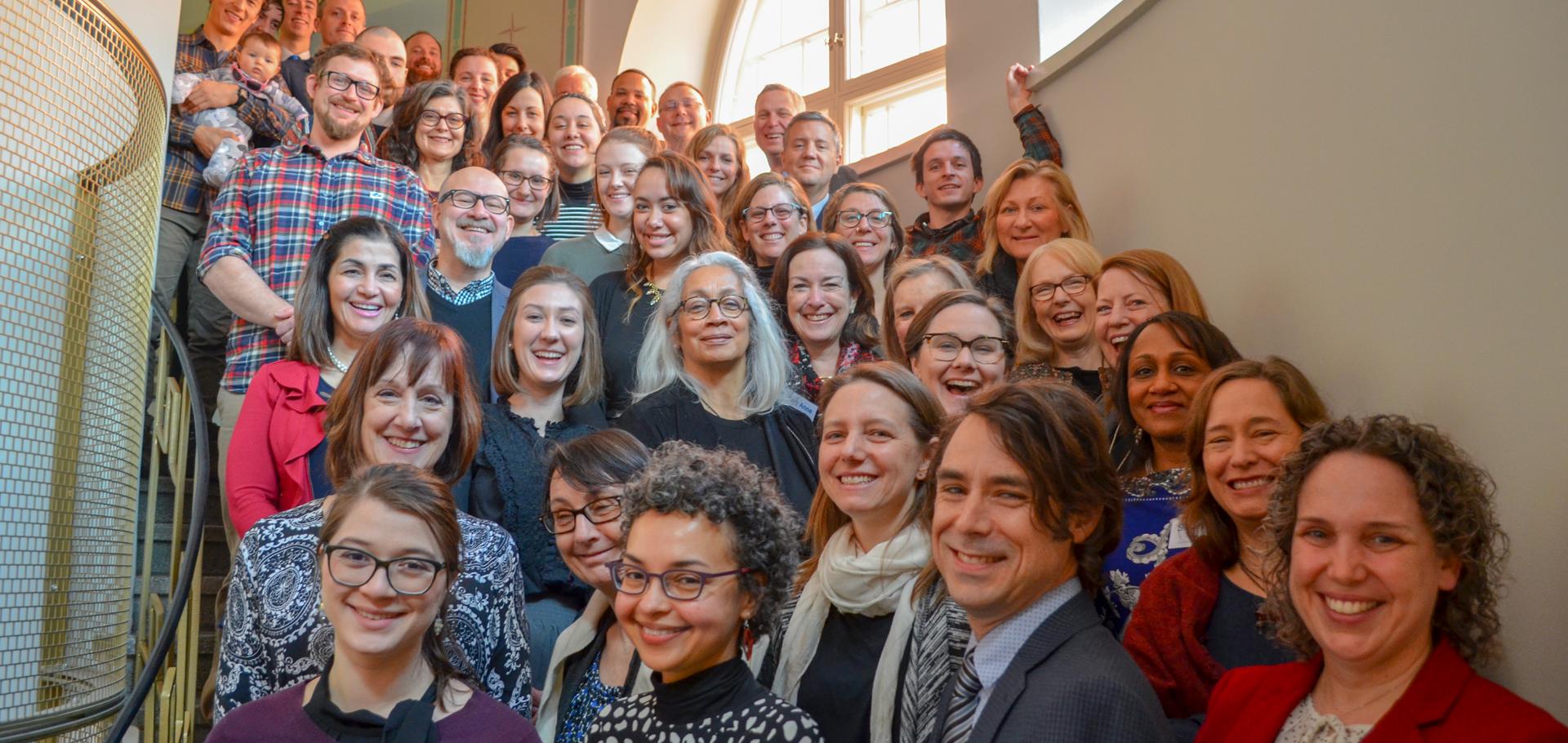
News & Blog
Tampereen yliopisto palkittiin USA-yhteistyöstä

Ujostelevasta suomalaisesta amerikkalaiseksi rohkelikoksi
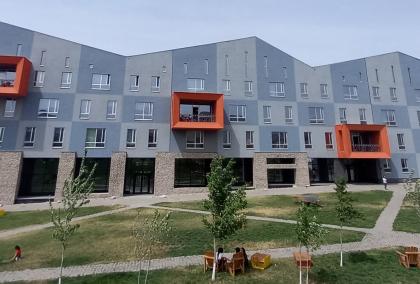
Yurts, Mountains, and a Liberal Arts Curriculum
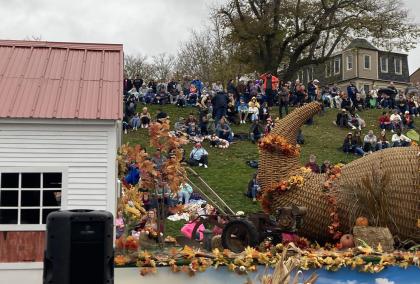
Learning About Cultural Contradictions

Season's Greetings and Thank You!
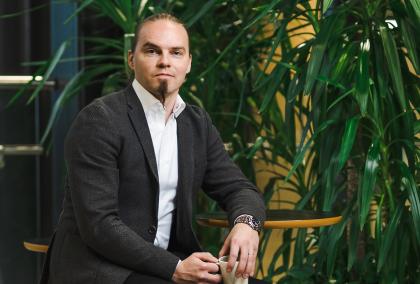
At the Nexus of Academia, Industry, and Society
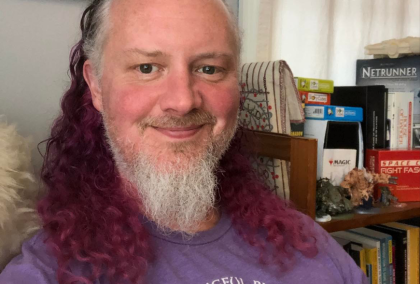
Making Games Differently
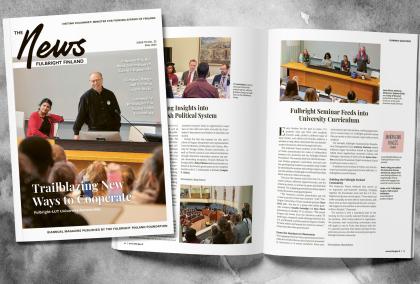
Read Fulbright Finland News 2/2023 Online!
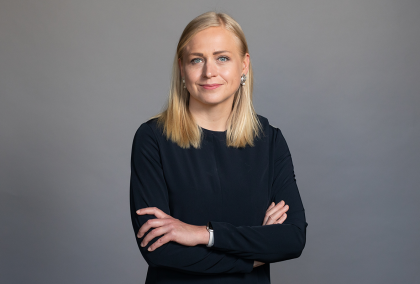
Finland and the United States – Key Allies in Security, Technology, and Cherishing People-to-People Ties
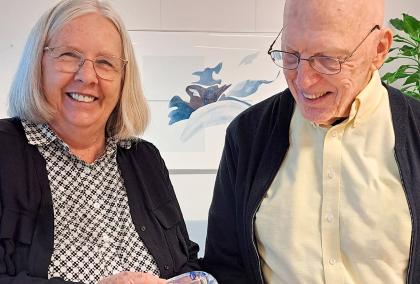
Paying it Forward
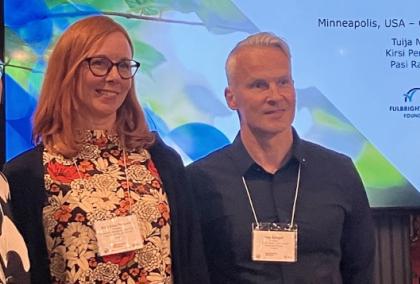
Reimagining Schools and Support for Refugee and Immigrant Students
Grant programs for studies, research and professional development between finland and the u.s..
The Fulbright Finland Foundation is an independent not-for-profit organization based in Helsinki, Finland. We promote the exchange of knowledge and professional talent through educational contacts between Finland and the United States. We design and manage study and research scholarships, leadership development programs and internationalization services in collaboration with a range of government, foundation, university and corporate partners on both sides of the Atlantic.
EDUFI Fellowship
- Internationalisation Higher education Internationalisation Funding
EDUFI Fellowship in a nutshell
Applicant: a Finnish university department
For whom: a doctoral student or a young researcher from outside Finland
Purpose: initial funding for completing a doctoral research project in Finland, completion of a double degree or a study visit on exceptionally compelling reasons
Application deadline: rolling deadline. You should apply for the grant five months before the start of the fellowship.
Duration of fellowship: 3–12 months, visits 3–6 months
Size of grant: 1,900 euros/month
Who can apply and for whom?
You can apply for the fellowship grant if
- you work as a researcher or a teacher in a Finnish university department
- you will be hosting the research fellow
- you will commit to common objectives with the research fellow
- you will offer facilities and equipment for the use of the research fellow
- you will supervise the research.
You can apply for the grant for a non-Finnish post-graduate (post Master’s degree) that you will invite to Finland or who has been in Finland for a maximum of one year before applying for the fellowship.
The EDUFI Fellowship is available to all foreign nationals and all fields of study.
What kind of work is the grant available for?
The fellowship grant is intended for post-graduate studies and research cooperation in Finnish universities in all fields of study.
We will award the grant
- for starting work on a doctoral research project if the whole doctoral thesis will be completed in a Finnish university. You cannot apply for the grant at the end of a research project or for post-doctoral research.
- for completing a double degree in Finland.
- for a study visit for post-graduate students working on a doctoral thesis in a university outside Finland, if there are particularly compelling reasons for the cooperation.
The fellow must work in Finland but is allowed to make conference visits abroad.
If the fellowship period is longer than six months, it can include short visits abroad to gather research material, if needed, in addition to conference trips. These visits in total cannot exceed one month.
If more time will be needed for gathering material during the EDUFI Fellowship, the fellowship grant can be applied only for those periods during which the fellow will be working in Finland.
The fellows cannot apply for the EDUFI Fellowship themselves, because the grant will be awarded only to a Finnish university department.
The university will pay the grant to the fellow as a personal grant. The university will invoice EDUFI for the grant as a lump sum at the earliest when the scholarship holder’s arrival in Finland is confirmed but at the latest three months after the start of the scholarship period.
The grant can be split over several periods.
The grant is intended to cover the living costs of the fellow in Finland. We will not pay separate accommodation costs or contribute to travel, visa, residence permit or insurance costs.
Rolling deadline
You can apply for the fellowship grant at any time. Please send the application to us at least five months before the planned start of the fellowship.
The application process will take about three months. Usually about 35-40% of applications are approved every year. Decisions will be sent to the applicant university department.
Fellows will need the following documents for their visa/residence permit application
- a copy of the EDUFI fellowship decision
- an invitation from the host university department
Application form and instructions
You can fill in the EDUFI Fellowship application form in Finnish, Swedish or English. The application form comes with instructions on how to fill it and a list of required annexes. Please e-mail the signed form and annexes to: Kirjaamo(at)oph.fi , and write “EDUFI Fellowship” in the subject line of the e-mail.
NB! EDUFI will not process applications where the applicant is some other than a Finnish university representative.
The Finnish National Agency for Education submits information on all decisions made on applications in the call EDUFI Fellowship to the tutkiavustuksia.fi service for publication (Act on discretionary government grants 688/2001).
As for discretionary government grants that have been made available for application after 1 October 2023, under section 32 of the Act on Discretionary Government Grants, the name of the natural person who is the government grant recipient, the purpose of the government grant and the regional allocation of the use of the government grant will be published by the State Treasury in the tutkiavustuksia.fi service. In addition, other public information on applying for, awarding and use of the discretionary government grant may be published in the service.
In negative decisions, the name of a natural person applying in a personal capacity will not be published, nor will awarded grants of less than EUR 1,000 be published.
Please find a link to our list of frequently asked questions and their answers below. We encourage you to read them through before contacting us.
- You can find our list of frequently asked questions here.
The aim of the EDUFI Fellowship is to help make Finnish research and teaching more international and to build networks between Finnish and foreign universities. Final reports allow us to monitor the impact of the fellowships.
In your report, you will be asked to list the main results of the fellowship period and to describe how the objectives for the fellowship were achieved.
Please submit the report within a month after the end of the fellowship.
Please use the online reporting form.
- Fill out the online reporting form here
In case you have any questions, please contact us via email: edufi_fellowship [at] oph.fi
Päivi Jokinen
Tarja Mäkelä (changes in grant periods, invoicing)
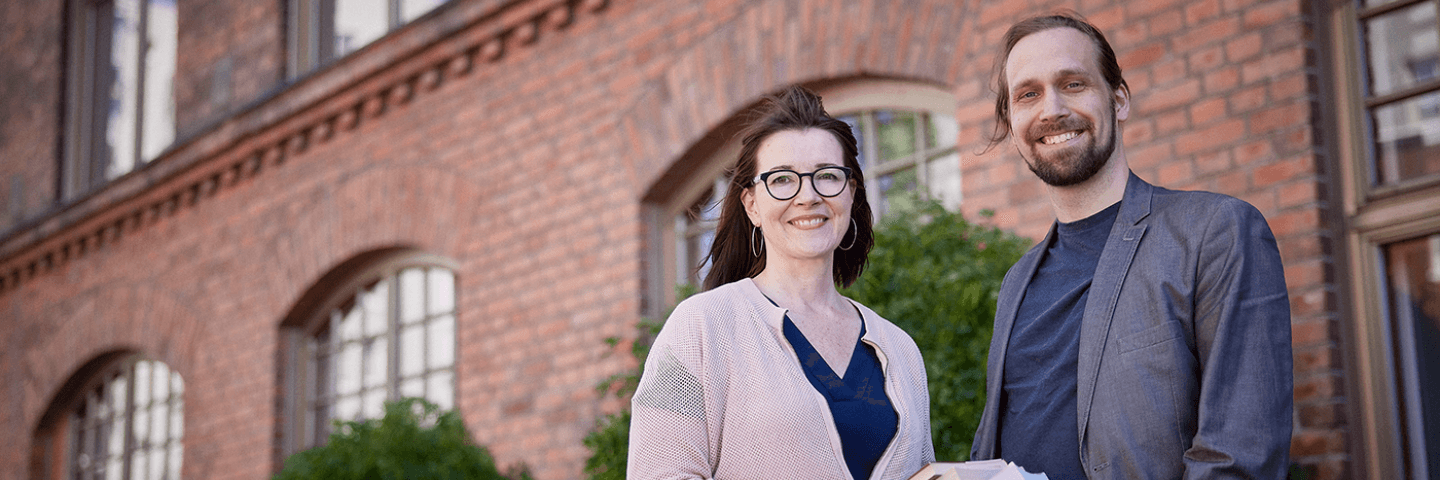
Doctoral Programmes
Faculty of built environment.
Doctoral Programme in the Built Environment (DPBEN)
Faculty of Education and Culture
Doctoral Programme of Education and Society (DPEDU)

Faculty of Engineering and Natural Sciences
Doctoral Programme in Engineering and Natural Sciences (TLTO)
Doctoral Programme in Engineering Sciences (TTITO)
Faculty of Information Technology and Communication Sciences
Doctoral Programme of Humans and Technologies (DPHAT)
Doctoral Programme in Media, Communication and Performing Arts (DPMCP)
Doctoral Programme in Language Studies (DPLA)
Doctoral Programme of Computing and Electrical Engineering (DPCEE)
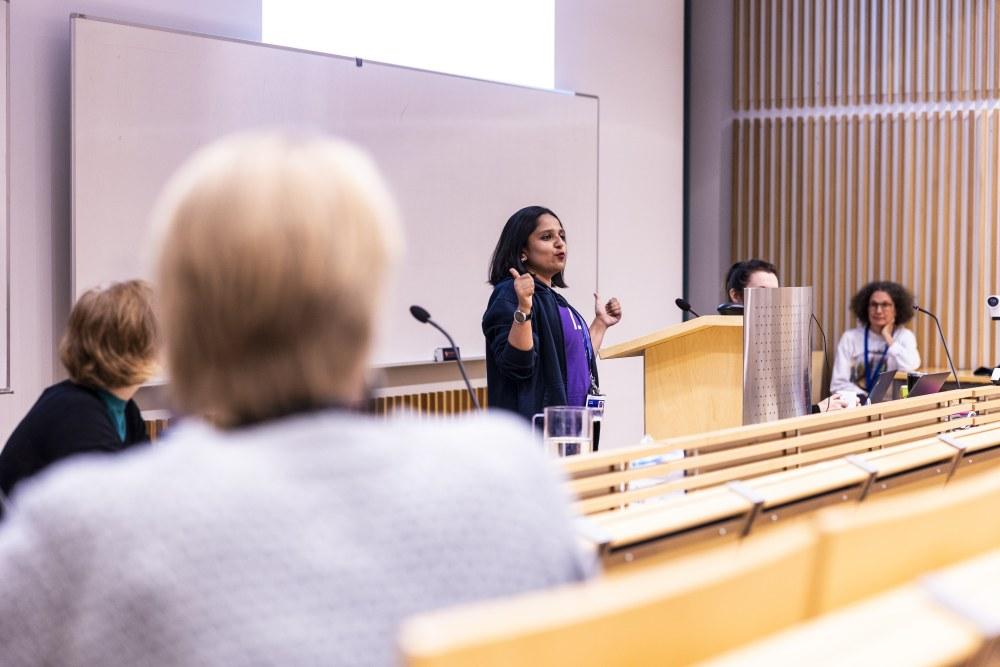
Faculty of Management and Business
Doctoral Programme in Administrative Sciences, Business Studies and Politics (DPHKP)
Doctoral Programme in Business and Technology Management (TOTO)
Faculty of Medicine and Health Technology
Doctoral Programme in Medicine, Biosciences and Biomedical Engineering (DPMBBE)
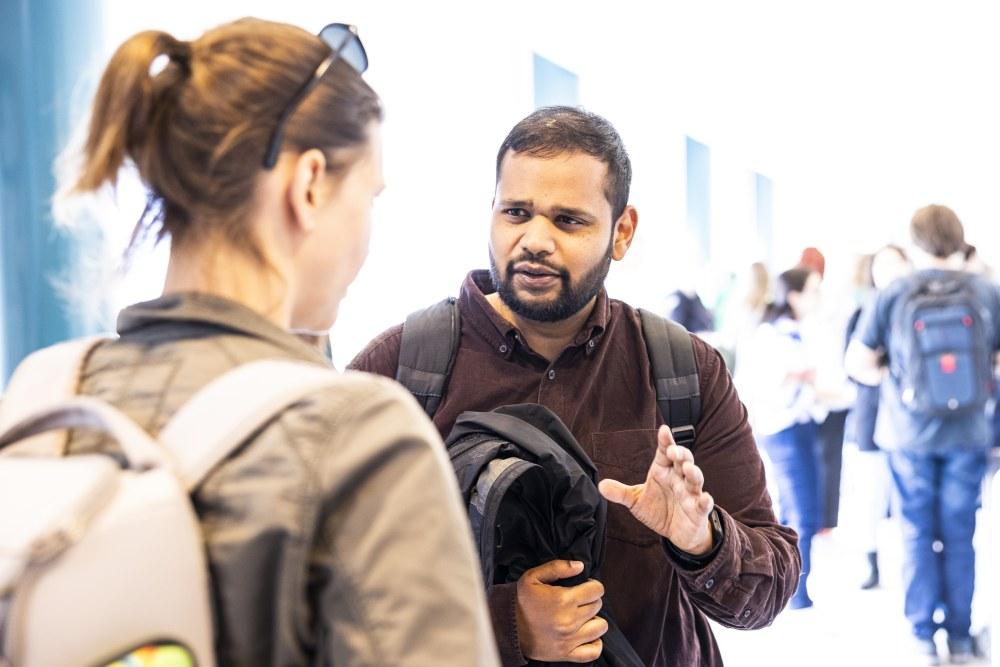
Faculty of Social Sciences
Doctoral Programme in Literary Studies (DPLS)
Doctoral Programme in Health Sciences (DPHS)
Doctoral Programme in History (DPHI)
Doctoral Programme in Psychology and Logopedics (DPPL)
Doctoral Programme in Social Sciences (DPSS)
Doctoral Programme in Medicine (DPMD)
Doctoral Programme in Philosophy (DPPH)
International Doctoral Programme in Epidemiology and Public Health (IPPE)
Additional information on doctoral studies
Structure and duration of doctoral studies.
In addition to the doctoral dissertation, the requirements for a doctoral degree include other studies, which you should plan to support your doctoral research. The structure of the other studies can be found in the curriculum of your doctoral programme.
For full-time doctoral students, the target time of completing the doctoral degree is four years. Part-time students may take longer to complete their degree.
Doctoral dissertation
To earn a doctoral degree, students must complete a dissertation and defend it in a public examination. Students prepare a dissertation to demonstrate their ability to produce original scientific knowledge in the field of their research. Writing the dissertation requires that the student is capable of conducting independent scientific research.
Tampere University Doctoral School
The Doctoral School supports the development of diverse, multidisciplinary and international expertise among doctoral researchers and works to promote employability of our doctoral graduates.
You will be able to select courses that meet your needs over 50 courses that the Doctoral School offers each year. We give Finnish and English-taught courses both online and in a physical classroom environment.
The Doctoral School hosts regular events for doctoral researchers such as Orientation Day and open lectures. You get to meet other doctoral researchers, network and receive peer support.
Our courses and events provide you with the opportunity to gain experience of multidisciplinary and international teamwork while making effective progress towards your degree.
Get to know the Doctoral School
Doctoral studies can be financed in a variety of ways and admittance to a doctoral programme does not guarantee funding. Students are recommended to contact their supervisor before starting their doctoral studies to discuss their funding options. Funding options for doctoral studies are at least the following:
- Employment at the University (either project funding or a separate doctoral education funding)
- Scholarships and grants
- Student financial aid (if eligible)
- Adult Education Allowance of the Education Fund (if eligible) (motion to terminate the allowance was submitted to the parliament on 15 February 2024)
- Doctoral education pilot at Tampere University
The Doctoral School of Industry Innovations
The Doctoral School of Industry Innovations (DSII) offers Doctoral Researchers a unique opportunity to undertake dissertation research, gain a thorough understanding of product development, tackle real-world business challenges and expand their professional networks. Tampere University hires a Doctoral Researcher to complete a four-year, company-sponsored dissertation project under the joint supervision of a university professor and a company representative.
Read more about DSII
Finland Fellowship
Finland Fellowship is a new funding option awarded by Tampere University as part of the national Finland Scholarship programme. Non-EU/EEA applicants to Doctoral programmes are eligible to apply. The Finland Fellowship contributes to the salary paid Tampere University and includes a 2000 EUR arrival allowance. The Finland Fellowship funding is available from 2022 to 2024. It is funded by the Finnish Ministry of Education and Culture. Positions funded with the Finland Fellowship funding are published as part of open positions at Tampere University.
Read more about working at Tampere Universities
Additional information on applying
Detailed information on applying to a doctoral programme is available in the admission requirements of the programme and our webpage Applying to Doctoral programmes.
Applying to doctoral programmes
Give us feedback!
We continue to build our site and welcome all feedback. Please also let us know if you spot any mistakes on our site. If you wish to get a reply, remember to include your email address in your feedback message.
If you have questions about studying with us, please contact [email protected] (Tampere University) or [email protected] (Tampere University of Applied Sciences). If you have problems with your user account or other IT-related issues, get in touch with our IT Helpdesk
Feedback (required field) *
Tampere University and Tampere University of Applied Sciences (TAMK) constitute the Tampere Universities community. Our areas of priority in research and education are technology, health and society. Tampere University: +358 (0)294 5211 Tampere University of Applied Sciences : +358 (0)294 5222

- Call for applications
- Applying and instructions
- Grant types
- Make a donation
The Foundation awards grants for doctoral candidates, post doc researchers, teachers and research groups at the University of Turku for over a million euro annually. In addition to the general fund, the Turku University Foundation has at present about 100 dedicated funds.
Instructions for applying grants are in the call for applications which is published before each application period. The spring period for applications is in February and the autumn period for applications is in September. More information is available in the online application service.
Reports on the travel grants, young researcher grants and research grants are submitted in the electronic grant application system. Reports on other grants are free form.

Electronic grant application system
The Spring Call for Applications
Application time in February (see exact dates in the News)
Grants are awarded for the following purposes: doctoral dissertation grants, post doc -grants, research grants (projects), congress and research trips abroad as well as researcher residency grants (Granö scholarship) to the Granö Centre Villa Tammekann (Tartu, Estonia).
The Autumn Call for Applications
Application time in September (see exact dates in the News)
Grants are awarded for congress and research trips abroad as well as researcher residency grants (Granö scholarship) to the Granö Centre Villa Tammekann (Tartu, Estonia).
Contact information
Turun Yliopistosäätiö Business ID: 0204863-0 Email: [email protected]
Maaherran makasiini Henrikinkatu 10 Turku
Postiosoite ja laskutustiedot
Estates Teija Niemi
Grants Marjukka Sillanpää
Tietosuojaseloste Apuraha-asiat Muita nostoja sisältöihin
Chief executive officer Mikael Luukanen
Director, Fundraising Varainhankinta Pekka Kanervisto
Rahankeräysluvan nro RA/2021/1185
- Turun yliopistosäätiö X:ssä
Doctoral programmes
How to apply for doctoral studies.
Find out what is required of applicants and what can our doctoral studies offer!
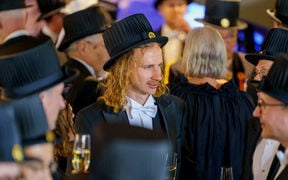
Aalto Doctoral Programme in Arts, Design and Architecture Aalto Doctoral Programme in Business, Economics and Finance Aalto Doctoral Programme in Chemical Engineering Aalto Doctoral Programme in Electrical Engineering Aalto Doctoral Programme in Engineering Aalto Doctoral Programme in Science
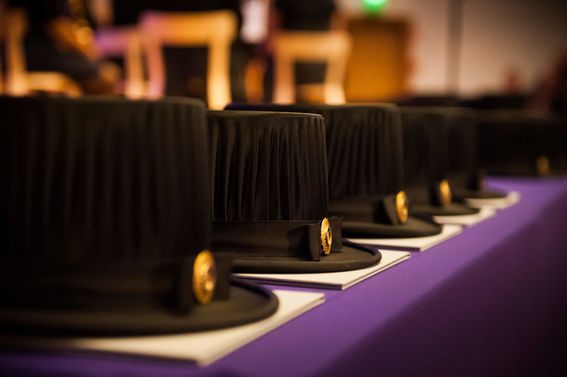
Our doctoral studies
Our doctoral students pursue the degrees of
Doctor of Arts (Art and Design) Doctor of Science (Architecture) Doctor of Science (Economics and Business Administration) Doctor of Science (Technology)
The target study time is four years of full-time studies.
Doctoral curricula (aalto.fi)
Management of doctoral education at Aalto University
Information on how doctoral education is lead and organised and related regultions
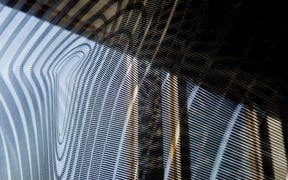
Research fields and supervising professors
The research fields of the School of Business are called major subjects.
Research fields and supervising professors at ARTS Majors and supervising professors at BIZ Research fields and supervising professors at CHEM Research fields and supervising professors at ELEC Research fields and supervising professors at ENG Research fields and supervising professors at SCI

Doctoral education services
We support doctoral students, supervising professors, thesis advisors and doctoral programme directors in matters related to doctoral studies.

Doctoral page index
Index of all aalto.fi pages about doctoral education
- Published: 4.5.2018
- Updated: 15.4.2024

- UniPID →
- FinCEAL+ →
- About FinCEAL Plus BRIDGES
- Open funding calls
- Past funding calls
- Workshops and Seminars
- International Events
- InfoBank Project and Expert Database
- Contribution and impact
- List of STI actors
- Newsletters
- Other Sources of Funding
FinCEAL Plus BRIDGES Grants 2019-2021
FinCEAL Plus BRIDGES (2019-2021) offers small scale grants for researchers in Finnish institutions, to support partnership building with colleagues from Africa, Asia, and the LAC region. Activities supported by the BRIDGES grants will need to be directly related to building research partnerships with colleagues from Africa, Asia, or LAC, and be relevant for one or more of the 17 Sustainable Development Goals. Please note all our grants need to be applied for by a representative of a Finnish research institution (university or research institute), we do not accept applications sent from other countries.
Follow the FinCEAL communication channels for more information on open calls, relevant events, and interesting publications: Newsletter , LinkedIn group, and on UniPID's website, mailing list , and social media channels.

The FinCEAL Plus BRIDGES Partnership Support Instrument 2021 Call
The 2021 call for funding under the Partnership Support Instrument supported the re-starting and development of partnerships between the Finnish science community and counterparts in Africa, Asia, and Latin America and the Caribbean to respond to the new realities for cooperation. Unlike previous calls, there were no pre-defined funding modalities.
The COVID-19 pandemic has impacted international partnerships in different ways, creating a variety of needs for partnership building. The 2021 PSI grants were intended to flexibly support researchers meet these needs for the establishment of new, or development of existing, partnerships.
FinCEAL Plus BRIDGES has offered the following grant modalities in the 2019 Open Call:
Travel grants for researchers.
The aim of the Travel Grants is to facilitate the participation of Finland-based researchers in regionally significant events such as Science, Technology, and Innovation (STI) meetings, policy dialogue events, or scientific conferences, workshops or networking events related to the Sustainable Development Goals (SDGs) . Ultimately, the aim is to increase Finnish involvement in bi-regional research cooperation and science policy formulation within the EU-Africa, EU-Asia and EU-LAC frameworks. A portion of the funding is reserved for PhD students. Eligible costs include travel, accommodation, per diem, and possible visa costs and registration fees for events. Generally, applicants are expected to have partial self-financing for covering the travel costs.
The BRIDGES project will issue 3 types of travel grants :
- Open Travel Grants - Researchers (have already acquired a PhD) can apply these to attend events of their choice, based on the specific call guidelines;
- Open PhD Travel Grants - PhD Students from Finnish institutions can apply to attend events of their choice, based on specific call guidelines. PhD students who are at middle or late-stage of their PhD studies will be given priority.
- Targeted Travel Grants - The events are pre-determined by the project, and are usually policy-related. The project coordinators periodically open targeted calls that are sent by email to relevant research teams and/or published in FinCEAL Plus communications channels. If interested in the targeted calls, please register to the Infobank and follow the FinCEAL Plus Newsletter .
Event grants
The purpose of the Event Grants is to support the organization of workshops, seminars, conferences or other types of events relevant to the Sustainable Development Goals (SDGs), Science, Technology and/or Innovation (STI) and events related to the Finnish International Strategy for Higher Education and Research 2017-2025. The events should be open for participation from other Finnish institutions and international participants, and events that include also European participation are prioritized. The grants are available to research groups/teams based in Finnish research institutions, which are actively engaged in cooperation or seeking to build new cooperation with research partners from these regions. The event can be organized in Finland or abroad.
Research Visit Grants from the regions to Finland
This funding modality is aimed for Finnish research institutions to invite research partners from Africa, Asia or the LAC region for short-term visits to Finland, and thus promotes science, technology and/or innovation cooperation between Finland and the target regions. The Grant is to be applied for by the hosting Finnish institution.The invited expert should be either a senior researcher (already has a PhD) or a senior staff member. The aim is to support visits that could accomplish a number of aims, but in particular, that of building new funding proposals. The grants can be used to cover travel, accommodation and daily allowances of the visiting researcher, but the salary should be covered either by the home or host institution.
To keep updated about our activities, please subscribe to the FinCEAL mailing list or join the FinCEAL Plus group on LinkedIn . You may also wish to subscribe to the UniPID newsletter for information on all other UniPID activities!
FinCEAL Plus Grants 2013-2018 in a nutshell

FinCEAL grants awarded in 2013-2018 by grant modality
Photo credit: Omar Flores on Unsplash

Funding opportunity: International Fellowships for Doctoral and Early Career Researchers 2024
Apply for a funded fellowship at an international institution.
Fellowships are available at:
Harry Ransom Center
Huntington library, library of congress, smithsonian institution.
- Yale Centre for British Art
National Institutes for the Humanities (NIHU)
- Shanghai Theatre Academy
You will receive £1,000 for travel and visa costs (£1,200 for travel to Japan and China) and £1,925 for each month of the fellowship. You can apply for two to six months of funding.
Please refer to the ‘Additional Information’ for more information on the aims of the scheme and an overview of each host.
Who can apply
This opportunity is open to:
- PhD students currently funded by the Arts and Humanities Research Council (AHRC)
- early career researchers (ECR) in any arts or humanities subject
PhD students funded by the Economic and Social Research Council (ESRC) may apply for a fellowship at the Library of Congress.
AHRC applicants must apply to undertake primary research in an AHRC subject area for all hosts.
ESRC-funded PhD students are only eligible to apply to Library of Congress and must be applying to undertake primary research in an ESRC subject area.
AHRC applicants can apply for a fellowship at more than one institution in a single round, noting that separate applications need to be submitted However, dates and applications must:
- be for separate and distinct research work packages
- not overlap
- take place in one continuous block of time
- not be interdependent
If applying for a fellowship at more than one institution, you should also check that there are no visa restrictions on returning to the host country within the same year.
You can only hold a fellowship at the same institution once in each stage of their career, for example once as a student and once as an ECR.
Deferred entry applications are not permitted. Equally, if your application is successful but you cannot undertake your placement, you must reapply the following year.
Before applying, you must secure the approval of your UK research organisation and supervisor (for PhD students) or head of department (early career researchers and research assistants) to attend the placement in full, should the application be successful.
Before applying for funding, check the Eligibility of your organisation .
UK Research and Innovation (UKRI) has introduced new role types for funding opportunities being run on the new UKRI Funding Service.
For full details, visit Eligibility as an individual .
Who is eligible to apply
Individual eligibility for phd students.
AHRC-funded doctoral students can apply to any host. ESRC-funded doctoral students can only apply to Library of Congress.
Placements must be undertaken during the funded period of your doctoral award.
PhD students must include their doctoral training grant reference in the ‘About you’ section of the application form.
Because these fellowships are intended to enrich and form part of the period of doctoral study, no additional time will be added to the doctoral award end date.
Individual eligibility for ECRs
At the point of application, you must have a contract with a UK research organisation that extends beyond the end date of the International Placement Scheme (IPS) fellowship, and be either within:
- eight years of the award of your PhD or equivalent professional training
- six years of your first academic appointment
These durations should exclude any period of career break. We define a career break as an extended period of time when you have not been actively engaged in scholarly research or teaching at a higher education institution. The career break could be, for example, for family care or health reasons. See section two of AHRC’s research funding guide for further information on the eligibility criteria for early career researchers.
Doctoral level research assistants are eligible – you must:
- be of postdoctoral standing, having either a PhD qualification or equivalent research experience
- and have a contract with a UK research organisation at the time of application that extends beyond the end date of the IPS fellowship
You will be asked to provide evidence of how you meet this criteria. Failure to do so could result in your application being rejected. Where previous AHRC funding has been held, ECRs must include their previous grant reference in the application form.
Equality, diversity and inclusion (EDI)
We invite applications from eligible doctoral students, and early career researchers in any arts and humanities discipline (and doctoral students in the social sciences for the Library of Congress) and from all regions and nations of the UK.
We are committed to promoting the values of equality of opportunity, diversity, and inclusivity. A dynamic, diverse and inclusive research and innovation system must be an integral part of UK society, giving everyone the opportunity to participate and to benefit. Therefore, we particularly encourage applications from persons who identify as:
- an ethnic minority
- people with health conditions or impairments
- persons of diverse gender identities and expressions
- persons identifying with other groups who are currently underrepresented
Disabled applicants may request an appropriate amount of additional funding where this is essential to taking up the fellowship and where it cannot be provided by routes such as the UKRI disabled students allowance . Applicants requiring this additional support should contact AHRC for further guidance and to discuss how to reflect this request within the application form.
Applications to UKRI through the new Funding Service can only be made if you have completed our EDI survey, which you are prompted to do when you open an account. However, diversity information will never be used in the assessment process nor to make funding decisions.
Host-specific eligibility
Applicants to NIHU, looking to work with the following collections, are required to speak and understand Japanese to an advanced level:
- National Institute of Japanese Literature (NIJL)
- National Museum of Japanese History (NMJH)
- (Depending on the research field) International Research Center for Japanese Studies (IRCJS)
For all other NIHU institutes, a knowledge of basic (conversational) Japanese is useful, but not compulsory.
Applicants to the Smithsonian Institution must select, and approach a contact, at the Institution in advance of submitting their application. This contact will act as an adviser should the respective application be successful. Please use the 2022 Smithsonian opportunities for research and study guide in order to contact an appropriate Smithsonian academic or staff member.
What we're looking for
We’re looking to fund eligible PhD students and early career researchers to complete a research fellowship at an international cultural institution for two to six months.
The International Placement Scheme (IPS) provides early career researchers, and AHRC-funded and ESRC-funded doctoral students, with inclusive and dedicated access to the internationally renowned collections, programmes and expertise held at IPS host institutions.
The scheme aims to enhance the depth, range, diversity, and quality of research activities conducted by scholars, including research exploring under-represented and under-researched cultures and histories.
IPS provides unique opportunities for networking with other international scholars based at these world-renowned institutions and can have a transformational impact on personal development and career progression.
The IPS host institutions for this round are:
- National Institutes for the Humanities, Japan
- Shanghai Theatre Academy, China
Your fellowship must be based on your area of current research (including your doctoral research if you are a PhD student). The proposed research activities and outputs from your fellowship should complement, strengthen, or build on your current area of research. You will need to propose a distinct package of research in your application and explain how this project relates to both your current research and the collections and expertise of your prospective host institution.
Full details of the documentation required can be found in ‘How to apply’, and the assessment criteria for applications to this scheme are available under ‘How we will assess your application’.
Please refer to the Available Fellowships document (PDF, 86KB) for information regarding the number of fellowships expected to be awarded by AHRC at each host, as well as the eligible period for undertaking a placement.
Funding available
The following should be noted with regards to costs and the application process:
- all IPS placements will be between three to six months, except for the Harry Ransom Centre and Shanghai Theatre Academy, and the total awarded will be a £1,000 one-off stipend for travel and visa costs (£1,200 for applicants to NIHU and STA) and a living stipend of £1,925 for each month of the fellowship
- limited additional support may be agreed by AHRC on a case-by-case basis for applicants with disabilities, to support inclusive and accessible participation
- the stipends will be paid directly to the submitting UK research organisation (RO) at 100% full economic cost. It is a condition of the award that the RO pays funds to fellows in full, in advance of the placement. This will allow flights and accommodation to be booked by the fellow in advance of their placement. The RO will then recoup the funds when these are paid to them by AHRC.
- IPS fellows will continue to receive any stipend or salary they receive as part of any current AHRC or ESRC award funding. PhD students will not be allowed additional time will be added to AHRC or ESRC award end date or submission date to account for time spent on their placement
- you should discuss your work plan with your supervisor (if a PhD student) or head of department (if an ECR or research assistant) and the IPS host institution to ensure your proposed research can be completed within a realistic timescale and will appropriately feed into your current research or any AHRC parent project
- There is no cap on the number of applications that can be submitted by a UK RO
How to apply
Preparing your application.
You must identify and research the institutions’ collections, fully familiarising yourself with them and how they are relevant to your own research. Please visit the institutions’ individual websites as a starting point to investigate the collections and inform your choice:
- Harry Ransom Center, Texas, US
- The Huntington Library, California, US
- The Library of Congress, Washington DC, US
- NIHU, Japan
- Smithsonian Institution, Washington DC, US
Once this initial step is completed, you can proceed to directly contact the relevant IPS institution to discuss your potential application and for information about the collections.
For NIHU and the Smithsonian Institution, you must contact the institutions before applying. For the other hosts, it is optional but highly recommended. Any contact should be made as soon as possible before the application deadline. Contact details can be found in the ‘Contact’ section of this page.
The project lead is responsible for completing the application process on the UK Research and Innovation (UKRI) Funding Service, but we expect all team members and project partners to contribute to the application.
Only the lead research organisation can submit an application to UKRI.
If a student’s PhD is funded through a consortium of research organisations, the application should be submitted by the student’s home research organisation rather than the consortia lead research organisation.
PhD students and ECRs are both eligible to apply as a Project Lead for this funding opportunity. UKRI expects that the research organisation will ensure that students do not apply for any other opportunities as a project lead unless it is specified that they are eligible to do so.
- Confirm you are the project lead.
- Sign in or create a Funding Service account. To create an account, select your organisation, verify your email address, and set a password. If your organisation is not listed, email [email protected] Please allow at least 10 working days for your organisation to be added to the Funding Service.
- Answer questions directly in the text boxes. You can save your answers and come back to complete them or work offline and return to copy and paste your answers. If we need you to upload a document, follow the upload instructions in the Funding Service. All questions and assessment criteria are listed in the How to apply section on this Funding finder page.
- Allow enough time to check your application in ‘read-only’ view before sending to your research office.
- Send the completed application to your research office for checking. They will return it to you if it needs editing.
- Your research office will submit the completed and checked application to UKRI.
Where indicated, you can also demonstrate elements of your responses in visual form if relevant. If using visual elements, you must:
- use images sparingly and only to convey important information that cannot easily be put into words
- insert each new image onto a new line
- provide a descriptive legend for each image immediately underneath it (this counts towards your word limit)
- files must be smaller than 8MB and in JPEG, JPG, JPE, JFI, JIF, JFIF, PNG, GIF, BMP or WEBP format
Watch our research office webinars about the new Funding Service .
For more guidance on the Funding Service, see:
- how applicants use the Funding Service
- how research offices use the Funding Service
- how reviewers use the Funding Service
Make sure you get any necessary approval from your organisation in advance and give your research office plenty of time to review and submit your application before the closing date.
AHRC must receive your application by 12 March 2024 at 4.00pm UK time.
You will not be able to apply after this time.
Make sure you are aware of and follow any internal institutional deadlines.
Following the submission of your application to the funding opportunity, your application cannot be changed, and applications will not be returned for amendment. If your application does not follow the guidance, it may be rejected.
Personal data
Processing personal data.
AHRC, as part of UKRI, will need to collect some personal information to manage your Funding Service account and the registration of your funding applications. We will handle personal data in line with UK data protection legislation and manage it securely. For more information, including how to exercise your rights, read our privacy notice .
AHRC as part of UKRI, will need to share the application and any personal information that it contains with the host institutions so that they can participate in the assessment process.
Publication of outcomes
AHRC, as part of UKRI, will publish the outcomes of this funding opportunity .
Important note for ECRs: If your application is successful, we will publish some personal information on the UKRI Gateway to Research .
Word limit: 250
In plain English, provide a summary of your proposed fellowship that can be sent to your intended host organisation to determine if they think you are a good fit.
This summary may be made publicly available on external facing websites, so please ensure it can be understood by a variety of readers, for example:
- opinion-formers
- policymakers
- the general public
- the wider research community
Your summary must include:
the name of the IPS host you aspire to study at (remember, if you are an ESRC applicant you can only apply for the Library of Congress).
List the key members of your team and assign them roles from the following:
- project lead (PL) – PhD students and ECRs are both eligible to apply under this role for this opportunity
Only list one individual as project lead.
Application questions
Eligibility to apply for opportunity.
Word limit: 200
Provide details about your eligibility status
What the assessors are looking for in your response
If you are a PhD student, please provide the following information:
- the title of your PhD
- the grant reference number for your current AHRC (beginning AH) or ESRC award (beginning ES). If that award is part of an institutional block grant or consortia grant, for example: BGP, DTP, DTC, CDA or CDP, we also require that grant reference number. If you are unsure of your grant reference number, you must contact your research organisation
- confirmation that if the application is successful no additional time will be added to the doctoral award end date
If you are an early career researcher, provide information detailing how you meet the eligibility criteria by confirming you have:
Note that the durations should exclude any period of career break.
If you are a doctoral level research assistant provide information detailing how you meet the eligibility criteria by confirming you:
- are of postdoctoral standing, having either a PhD qualification or equivalent research experience
- have a contract with a UK RO at the time of application that extends beyond the end date of the IPS fellowship
Word limit: 500
Why is the travel needed?
Explain why the proposed travel is necessary and where alternative approaches are not appropriate, including reference to:
- added value to existing or future research and innovation
- promotion of collaboration
- acquisition and development of skills
- benefit to the countries, organisations and regions involved where appropriate
- why you are the best person to carry out this visit
- why the place you are travelling to is the best place to go to, in terms of people and resources (including access to particular collections)
- a breakdown of how the time spent there would be used
Within this section we expect you to provide:
- a summary of the research you propose to conduct during your IPS fellowship, indicating how it relates to your current research
- explanation of how your research objectives, methodologies, context or both could offer a unique contribution to your host community
You may demonstrate elements of your responses in visual form if relevant. Further details are provided in the service.
Applicant experience
Word limit: 600
Why are you the right individual to successfully deliver the proposed work?
Evidence of how you have:
- the relevant experience (appropriate to career stage) to make best use of the benefits presented by this funding opportunity to develop your career
- the right balance of skills and aptitude (including language proficiency if relevant) to deliver the proposed work
Within this section we expect you to include:
- a brief summary of your current research to date (including any AHRC/ESRC-funded grants)
- a timeline for the completion of any current research projects, showing the stage you are at now and the stage at which the IPS fellowship would take place (you may include a table if it helps)
Your supervisor’s or head of department support
Word limit: 400
Provide a statement of support from your Supervisor if applying as a PhD student or Head of Department if ECR.
Reviewers will be looking for a strong statement of support.
The statement should include:
- why the proposed institution is appropriate for you to conduct your research
- details of the supervisory arrangements that will be in place while you are undertaking your research during this placement
- assurance that the time spent at on the IPS will not result in extra time being required to complete the current research funded by AHRC/ESRC
You must also include the following details:
- the person’s name and position
- office address or web link
Upload details are provided within the service on the actual application.
How we will assess your application
Assessment process.
All applications will be checked for eligibility after the funding opportunity closes.
Eligible applications will be shared with the respective placement institutions and will be reviewed by relevant experts at the institutions. Scores and comments from the host reviews will then be moderated by AHRC and ESRC.
Applications which do not meet the eligibility requirements of this funding opportunity will be rejected prior to the reviewing stage. We will notify the submitter for any applications rejected at this stage.
Funding decisions will be communicated to the persons who were selected as ‘grant holders’ on the application form. Where the applicant is a student, this email should be forwarded to them without delay.
The email will provide successful applicants with further information about their placement and will request confirmation of the start and end dates of each placement.
Principles of assessment
We support the San Francisco declaration on research assessment and recognise the relationship between research assessment and research integrity.
Find out about the UKRI principles of assessment and decision making .
Assessment areas
The assessment areas we will use are:
- eligibility
- applicant experience
- supervisor’s or head of department’s support
Find details of assessment questions and criteria under the ‘Application questions’ heading in the ‘How to apply’ section.
Contact details
Get help with your application.
If you have a question and the answers aren’t provided on this page
Important note: The Helpdesk is committed to helping users of the UK Research and Innovation (UKRI) Funding Service as effectively and as quickly as possible. In order to manage cases at peak volume times, the Helpdesk will triage and prioritise those queries with an imminent opportunity deadline or a technical issue. Enquiries raised where information is available on the Funding Finder opportunity page and should be understood early in the application process (for example, regarding eligibility or content/remit of an opportunity) will not constitute a priority case and will be addressed as soon as possible.
For help and advice on costings and writing your proposal please contact your research office in the first instance, allowing sufficient time for your organisation’s submission process.
For questions related to this specific funding opportunity please contact [email protected]
Any queries regarding the system or the submission of applications through the Funding Service should be directed to the helpdesk.
Email: [email protected] Phone: 01793 547490
Our phone lines are open:
- Monday to Thursday 8:30am to 5:00pm
- Friday 8:30am to 4:30pm
To help us process queries quicker, we request that users highlight the council and opportunity name in the subject title of their email query, include the application reference number, and refrain from contacting more than one mailbox at a time.
Find out more information on submitting an application .
For questions relating to the host institutions (for example about collections or accommodation), a list of appropriate contacts at each placement institution who can be contacted to discuss the application is below.
Please consult the collections page for information on collections at the Harry Ransom Center.
For additional information please contact: [email protected]
Please consult the Library Collections for information on collections at the Huntington Library.
Prospective applicants are encouraged to contact curators with questions related to the collections.
For all other queries please contact:
Krystal Satrum, Fellowships Program Coordinator
Email: [email protected]
Travis Hensley, Program Manager, The John W. Kluge Center
Email: [email protected]
Travis will direct you to the appropriate individual.
From the Smithsonian website , please select a name by clicking into the 2022 SORS and searching for the appropriate individual. If successful, the selected individual will act as advisor during the applicant’s time at Smithsonian. As such, applicants must include the name and department of their advisor when submitting their application form to AHRC. When contacting the Smithsonian, please use this email template (PDF, 118KB) .
You may also wish to contact the Office of International Relations for queries relating to visas:
Laine Rover
Email: [email protected]
Email: [email protected]
Research Institute for Humanity and Nature
International Affairs Subsection
Email: [email protected]
Research Institute for Humanity and Nature website .
International Research Center for Japanese Studies
International Research Promotion Unit
Email: [email protected]
International Research Center for Japanese Studies website .
National Museum of Ethnology
International Cooperation Unit
Email: [email protected]
National Museum of Ethnology website .
National Museum of Japanese History
International Exchange Section Department
Email: [email protected]
National Institute of Japanese Literature
General Affairs Division
Email: [email protected]
National Institute of Japanese Literature website .
National Institute for Japanese Language and Linguistics
Research Promotion Division
Email: [email protected]
National Institute for Japanese Language and Linguistics website .
Sensitive information
If you or a core team member need to tell us something you wish to remain confidential, email the Funding Service helpdesk on [email protected]
Include in the subject line: [the funding opportunity title; sensitive information; your Funding Service application number].
Typical examples of confidential information include:
- individual is unavailable until a certain date (for example due to parental leave)
- declaration of interest
- additional information about eligibility to apply that would not be appropriately shared in the ‘Applicant and team capability’ section
- conflict of interest for UKRI to consider in reviewer or panel participant selection
- the application is an invited resubmission
For information about how UKRI handles personal data, read UKRI’s privacy notice .
Additional info
Successful applications.
Once outcomes are issued, successful applicants will have 10 working days to confirm their start and end dates. Failure to do so will result in AHRC using the dates originally selected in the application. Beyond this, applicants will be required to contact the host institution directly to discuss the feasibility of any changes before contacting AHRC to approve and process any changes.
Around 30 days from the first successful notification, the UK research organisation responsible for submitting the application will receive an official offer document from AHRC via our grants system confirming the dates and funding amount. This should be sent on to the successful applicant.
Finally, the applicant will receive documentation from their placement institution. Further details of this will be provided if their application is successful.
If successful, IPS fellows are responsible for booking travel and accommodation (including any travel insurance) and securing appropriate visa arrangements themselves. Local accommodation is available close to each host institution. Further information regarding accommodation options will be provided if you are successful.
The offer letter issued by AHRC and the paperwork from individual placement institutions will be sufficient to support a visa application, and the UK research organisation may be able to offer support for this process. Successful applicants are advised to start the visa application process as early as possible, and to be aware that there is a short turnaround time between outcomes being issued and the earliest possible placement start dates.
Reporting outputs and impacts
All recipients of research council funding are required to enter the details of their outputs and impacts through the Researchfish system. Students are only required to enter details in Researchfish from the third year of their PhD onwards.
ECRs are required to enter details from the first year of their main research grant. Invitation emails will be sent to award holders at the point at which they are required to start using Researchfish.
Find out more details regarding Researchfish .
For further information on supporting training awards please see:
- UKRI training grant guide
- UKRI training grant terms and conditions
- find studentships and doctoral training
AHRC will be hosting a webinar on 10 January 2024 at 3pm to talk you through the application process.
Register for webinar .
This is the website for UKRI: our seven research councils, Research England and Innovate UK. Let us know if you have feedback or would like to help improve our online products and services .

DSI-NRF Postgraduate Student Funding for the 2025 Academic Year
The DSI and NRF are pleased to announce a call for new applications for DSI-NRF Postgraduate Student Funding for the academic year 2025. All continuing students who are eligible for a second or third year of funding must submit a Progress Report and not a new application.
The NRF minimum academic requirement for postgraduate funding is 65% . The entry age requirement is 28, 30 and 32 years or younger for honours, master’s and doctoral studies respectively, in the year of application, regardless of the first year of registration. Successful applicants will be funded either at Full Cost of Study (FCS) or Partial Cost of Study (PCS) . The FCS funding will be awarded to South African citizens and Permanent Residents only, who are either financially needy (i.e., those whose combined household family income is less than or equals to R350 000 per annum), living with a disability or exceptional academic achievers .
However, the PCS funding will be awarded to 5% of international students including South African citizens and Permanent Residents who could not be funded under FCS but meet other minimum requirements for the NRF scholarship funding criteria. The scholarships are intended to support honours, master’s and doctoral candidates to pursue studies in all areas of Science, Engineering, Technology, Social Sciences, and Humanities .
All the postgraduate students will be expected to apply on the NRF Connect System by accessing the link: https://nrfconnect.nrf.ac.za/ . No manual applications will be accepted .
Students’ Applications Opening and Closing Dates:
The Designated Authority (DA) Submission to NRF Closing Dates:
NB: Honours General Scholarships will open in July 2024 and institutions will have until end of March 2025 to claim funds of recommended eligible students. Honours applicants requiring ISFAP assessment should submit their applications by 02 September 2024.
Please refer to the Application and Funding Guide and Framework documents when completing the online application form at every step of the process.
For enquiries, applicants are encouraged to contact the Research or Postgraduate offices at their universities. Should there still be a need to contact the NRF, below are the contact persons and details:
For General honours related enquiries, please contact:
Mr Lehlogonolo Phaahla
Professional Officer Telephone: 012 481 4315
Email Address: [email protected]
For General First-time master’s and doctoral, and NRF-DAAD related enquiries, please contact:
Ms Kgaugelo Molepo
Professional Officer
Telephone: 012 481 4148
Email Address: [email protected]
For master’s and doctoral Extension Support, NRF-SASAC, PDP and NRF-SASOL related enquiries, please contact:
Ms Nontokozo Kunene Professional Officer
Telephone: 012 481 4105
Email Address: [email protected]
For National Skills Fund and NRF-MINDS related enquiries, please contact:
Ms Busisiwe Sibiya
Telephone: 012 481 4166
Email Address: [email protected]
For Global Knowledge Partnerships related enquiries, please contact: Mr Nelson Komane: Professional Officer Telephone: 012 481 4219 Email Address: [email protected]
For First-time SARChI honours, master’s and doctoral related enquiries, please contact:
Ms Andisiwe Jukuda Professional Officer Telephone: 012 481 4113 Email Address: [email protected]
For First-time CoEs honours, master’s and doctoral related enquiries, please contact:
Ms Malekgotla Finger Professional Officer Telephone: 012 481 4003 Email Address: [email protected]
For SARAO Master’s and Doctoral related enquiries, please contact:
Annah Mashemola Email Address: [email protected] Telephone: 011 268 3420
For SARAO Honours related enquiries, please contact:
Mkhululi Jodwana Email Address: [email protected] Telephone: 011 268 3412
NRF FRAUD LINE to anonymously report any irregular, corrupt or unethical conduct relating to funding:
Telephone: 0800 701 701 SMS: 39772 Website: https://www.nrf.ac.za/pixpopup-item/fraud-hotline-popup/
Related Posts
Call for applications: globalink research award thematic call, dsi-nrf postgraduate student funding for the 2024 academic year, invitation for nominations for professional development programme (pdp) postdoctoral fellowships for 2023, 2023 ithemba labs physics summer school call for applications.
Hit enter to search or ESC to close
Funding for individual researchers
Academy professor.
Academy Professors are internationally leading-edge researchers and recognised experts in their field who are expected to have great scientific impact in the scientific community and in society at large. They are also expected to significantly advance research in their field and to develop creative research environments. When you apply for funding for a research post as Academy Professor, you apply for funding for your own salary for up to five years.
Academy Professor funding is open for application every 2–3 years.
Academy Research Fellow
When you apply for an Academy Research Fellowship, you apply for four-year funding towards your own salary, hiring a research team or, if necessary, other research costs. Academy Research Fellows produce high-quality, high-impact research that stimulates the renewal of science. An Academy Research Fellow is a talented early-career researcher. The funding supports the Academy Research Fellow so that they can increase their competencies and make significant career progress towards more demanding research positions and achieve an established position in the national and international research community.
Applications for Academy Research Fellowship funding are invited in the winter call.
Clinical Researcher funding
The Research Council of Finland funds part-time research by physicians and other researchers engaged in clinical practice. The aim is to promote clinical research careers in cooperation with, for example, university hospitals, and to encourage medical doctors and other researchers working in clinical practice to engage in research.
Applications for Clinical Researcher funding are invited in the winter call.
Mobility Funding
The Research Council of Finland's bilateral mobility funding promotes the international interactions of Finnish researchers as well as the internationalisation of Finnish research environments. The mobility funding concerns the following countries: China (incl. Taiwan), Germany, India and Japan. The funding is especially designed to support early-career, postdoctoral researchers.
Mobility funding is open for application each year in September.
- Calls for applications
Do you have questions or feedback for us?
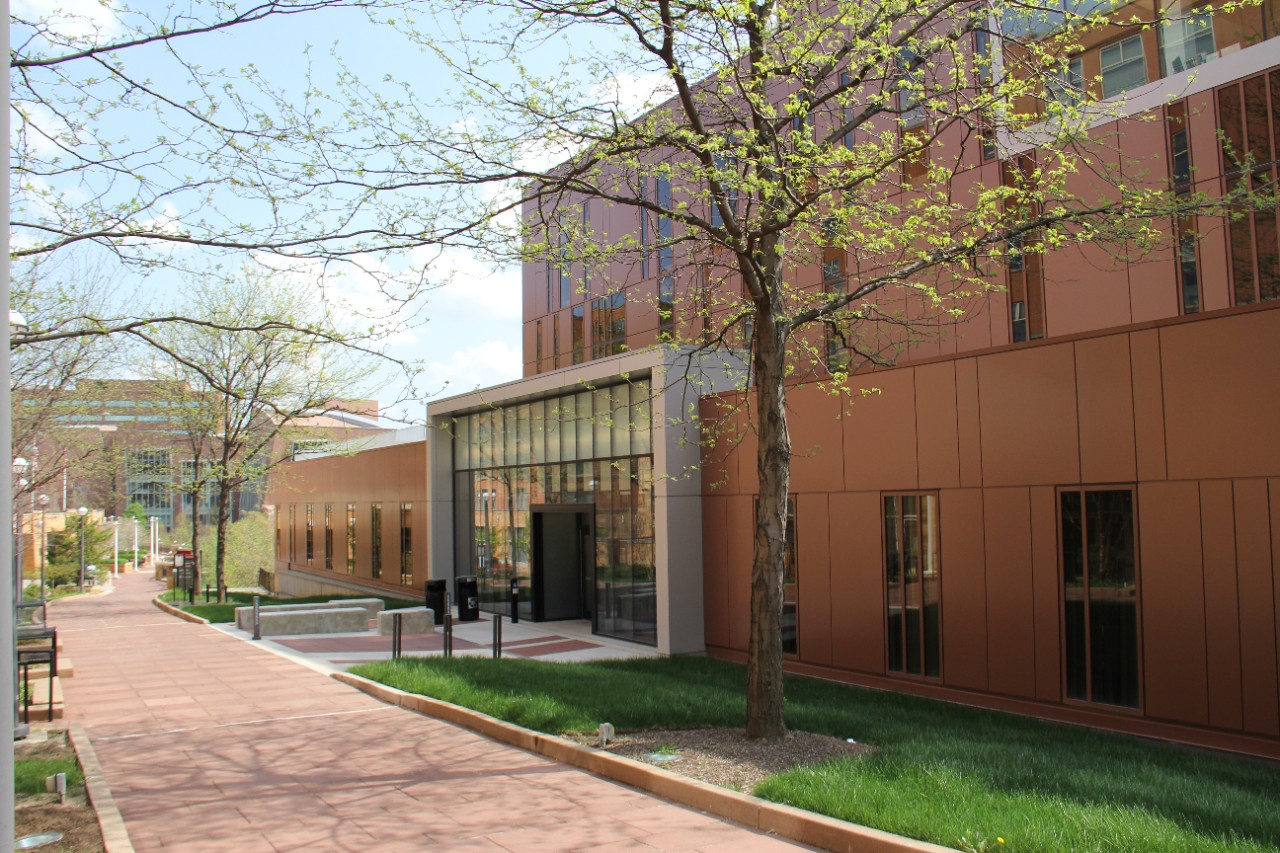
UC College of Nursing researcher accepted for prestigious fellowship for nurse leaders and innovators

Samantha Boch, PhD, RN, assistant professor at the University of Cincinnati College of Nursing and affiliate faculty of the James M. Anderson Center for Health Systems Excellence at Cincinnati Children's Hospital is one of 16 nurse scientists accepted to the fifth cohort of the Betty Irene Moore Fellowship for Nurse Leaders and Innovators . The fellowship program, funded by grants from the Gordon and Betty Moore Foundation , recognizes and advances early-to-mid-career nursing scholars and innovators with a high potential to accelerate leadership in nursing research, practice, education, policy and entrepreneurship.
The Gordon and Betty Moore Foundation seeks to prepare nurses as collaborative leaders with the skills and confidence to inspire others, enact change and challenge the status quo. Through the creation of the Betty Irene Moore Fellowship for Nurse Leaders and Innovators, the foundation supports nurse leaders who take ideas to scale that advance high-quality, high-value care and optimal health outcomes.
“Our motto is UC Nurses. We See Leaders ,” Interim Dean Gordon Gillespie, PhD, DNP, RN, FAAN, says. “Sam is the epitome of a nursing leader and scholar; I can’t wait to see the impact her project will have in advancing health equity and education in our country.”
Samantha Boch, PhD, RN
As a part of the three-year fellowship program , Boch will receive $450,000 to conduct an innovative project focused on better understanding the health of and use of health services by children in foster care who also experience parental incarceration. Mentored by Cincinnati Children’s Hospital CHECK (Comprehensive Health Evaluations for Cincinnati’s Kids) Foster Care Center Medical Director Mary Greiner, MD, MS, and Scientific Director for Child Welfare Research Sarah Beal, PhD, Boch will leverage CHECK’s data to identify opportunities to better care for those children.
She will also partner with Ebony Underwood, CEO & Founder of WE GOT US NOW , the nation’s leading organization advancing the wellbeing of children and young adults with incarcerated parents, to co-design care guidelines for children who experience parental incarceration.
"I am thrilled to be in partnership with Sam,” Underwood says. “Her commitment to uplifting and elevating the subject matter expertise of those closest to this issue is a testament to her leadership and dedication in advancing the health equity and well-being for the vulnerable population of children impacted by parental incarceration."
A forensic nurse scientist, Boch’s program of research centers on the social determinants of health with particular emphasis on understanding and mitigating the consequences of mass incarceration on child and family health.
“I’m deeply honored to have been chosen as part of the cohort for the Betty Irene Moore Fellowship for Nurse Leaders and Innovators,” says Boch. “This is a unique opportunity to further develop my leadership skills and partner with amazing organizations, mentors, and individuals with lived experiences of parental incarceration to positively impact care and the health of these families.”
Featured top image of the UC College of Nursing. Photo provided.
- Urban Impact
- College of Nursing
Related Stories
May 29, 2024
Samantha Boch, PhD, RN, assistant professor at the University of Cincinnati College of Nursing and affiliate faculty of the James M. Anderson Center for Health Systems Excellence at Cincinnati Children's Hospital is one of 16 nurse scientists accepted to the fifth cohort of the Betty Irene Moore Fellowship for Nurse Leaders and Innovators. The fellowship program, funded by grants from the Gordon and Betty Moore Foundation, recognizes and advances early-to-mid-career nursing scholars and innovators with a high potential to accelerate leadership in nursing research, practice, education, policy and entrepreneurship
UC research finds link between poor health, low breast milk production
September 29, 2022
New research from UC shows that poor metabolic health parameters are linked to low breast milk production. The study was published in the journal Breastfeeding Medicine.
Two popular diabetes drugs outperformed others in large clinical trial
September 21, 2022
UC is one of 36 sites part of the GRADE study comparing different diabetes medicines. The study is going to be published in the New England Journal of Medicine.

IMAGES
VIDEO
COMMENTS
As part of the Finland Scholarship programme, Finland Fellowships is a funding option for non-EU/EEA students and researchers admitted to start their Doctoral studies at one of Finnish research and arts universities. The Finland Fellowship contributes to the salary paid by your Finnish university and also includes a 2000€ arrival grant.
Grants are the most common way of funding doctoral studies at the University of Helsinki. Grants for academic research are awarded by various foundations and organisations both in Finland and other countries. The University of Helsinki strives to actively develop the position of grant-funded researchers at the University.
During the academic year 2024-2025, the Finnish Ministry of Education and Culture is funding 178 new doctoral researcher positions at Aalto University through the Doctoral education pilot. Finland Fellowship - funding opportunity for new doctoral students in 2022-2024.
Huttunen Foundation offers grants to young Finns for the completion of doctoral studies outside Finland. Finnish Foundations' Post Doc Pool supports postdoctoral research in universities outside Finland. Funding can be applied for immediately after receiving the permission to publicly defend your doctoral thesis.
Funding options should be discussed with the supervisor already when planning to apply for a doctoral study right and creating a research plan. Doctoral studies can be funded for example by a scholarship, by working as a researcher in a research project, by working as a doctoral candidate at the University of Eastern Finland (doctoral student ...
During the academic year 2024-2025, the Finnish Ministry of Education and Culture is funding 178 new doctoral researcher positions at Aalto University through a doctoral education pilot. ... Students apply for Finland Fellowships when applying for doctoral studies at Aalto. Finland Fellowships are awarded only by application. Decisions on ...
The University of Helsinki Doctoral School has 33 doctoral programmes. Doctoral study rights are applied to from the programmes. Study rights are applicable 2-5 times a year, depending on the doctoral programme. Call for applications for new university-funded doctoral researcher positions is opened once a year.
Fulbright-Technology Industries of Finland Grants; Fulbright Finnish Language and Culture Teaching Assistant Program (FLTA) Grants for Doctoral Studies and Research. ASLA-Fulbright Pre-Doctoral Research Fellows Program; Fulbright-KAUTE Foundation Award; Grants for Research (Postdoc and Scholar) ASLA-Fulbright Research Grant for a Junior Scholar
The University of Tampere Foundation awards grants to doctoral students in social, ... students may receive support from the Social Insurance Institution of Finland (Kela) for studying towards a scientific postgraduate degree at a higher education institution. A Finnish doctoral student may receive a study grant for 9 months at the most ...
There are two-types of higher education institutions in Finland, but only one offers doctoral level degrees.. Finland's higher education system includes the following: Finland's 13 universities offer PhD programmes and promote independent academic research and provide higher education based upon research; Finland's 22 universities of applied sciences do not offer PhD programmes.
Applicant: a Finnish university department For whom: a doctoral student or a young researcher from outside Finland Purpose: initial funding for completing a doctoral research project in Finland, completion of a double degree or a study visit on exceptionally compelling reasons Application deadline: rolling deadline.You should apply for the grant five months before the start of the fellowship.
Non-EU/EEA applicants to Doctoral programmes are eligible to apply. The Finland Fellowship contributes to the salary paid Tampere University and includes a 2000 EUR arrival allowance. The Finland Fellowship funding is available from 2022 to 2024. It is funded by the Finnish Ministry of Education and Culture.
The Foundation awards grants for doctoral candidates, post doc researchers, teachers and research groups at the University of Turku for over a million euro annually. In addition to the general fund, the Turku University Foundation has at present about 100 dedicated funds. Instructions for applying grants are in the call for applications which ...
When working as a grant-funded researcher in the University of Eastern Finland, there are two types of agreements available depending on the time of the grant period. If you have received an external funding of at least 12 months, you'll have an opportunity to conclude a part-time (10%) contract of employment with the university.
Our six doctoral programmes offer high quality doctoral education within a multidisciplinary international research community. They prepare doctoral students for demanding academic careers and experts positions, and for working as entrepreneurs or independent artists.
Research Council of Finland. We fund high-quality scientific research, provide expertise in science and science policy and strengthen the position of science and research. ... Research Council of Finland's winter call 2024 closed in January with a total of 2,876 applications submitted to the funding calls that were open for application. Read ...
26 Sep 2019 at 16.15 Finnish time. Funding period: 1 Sep 2020-31 Aug 2023. State: Decided. The average funding is approximately 200,000-300,000 euros per Postdoctoral Researcher. The applicant is an independent researcher with no more than 4 years of experience since completing their doctoral degree at the end of the call deadline. The aim ...
23 September 2021 at 16.15 Finnish time. Funding period: 1 September 2022 - 31 August 2025. State: Decided. average funding 200,000-300,000 euros per Postdoctoral Researcher. for individual researchers with a doctoral certificate dated between 30 September 2017 and 22 September 2021. The aim of the funding for a research post as Postdoctoral ...
The Grant is to be applied for by the hosting Finnish institution.The invited expert should be either a senior researcher (already has a PhD) or a senior staff member. The aim is to support visits that could accomplish a number of aims, but in particular, that of building new funding proposals. The grants can be used to cover travel ...
Quantum Doctoral Pilot Programme. This new doctoral programme (QDOC) will train the next line of quantum technology experts as part of the Finnish Quantum Flagship's eight-year master plan. The Finnish Ministry of Education announced on February 7, 2024 its funding plans for Finland's new PhD pilot programme, which aims to recruit 1 000 new ...
International Fellowships for Doctoral and Early Career Researchers 2024. Apply for a funded fellowship at an international institution. Fellowships are available at: You will receive £1,000 for travel and visa costs (£1,200 for travel to Japan and China) and £1,925 for each month of the fellowship. You can apply for two to six months of ...
The NRF minimum academic requirement for postgraduate funding is 65%. The entry age requirement is 28, 30 and 32 years or younger for honours, master's and doctoral studies respectively, in the year of application, regardless of the first year of registration.
When you apply for an Academy Research Fellowship, you apply for four-year funding towards your own salary, hiring a research team or, if necessary, other research costs. Academy Research Fellows produce high-quality, high-impact research that stimulates the renewal of science. An Academy Research Fellow is a talented early-career researcher.
Meria Heikelä. Director, MSc. Business Finland, Finland Trade Commission, London. meria.heikela (at) businessfinland.fi. Tel. +44 778 715 3014. Finland will showcase its healthcare advancements at the World Exhibition 2025 in Osaka. Finnish health companies are invited to join the Health Days.
Samantha Boch, PhD, RN, assistant professor at the University of Cincinnati College of Nursing and affiliate faculty of the James M. Anderson Center for Health Systems Excellence at Cincinnati Children's Hospital is one of 16 nurse scientists accepted to the fifth cohort of the Betty Irene Moore Fellowship for Nurse Leaders and Innovators. The fellowship program, funded by grants from the ...